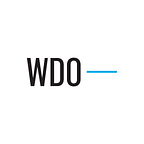World Design Capital Valencia 2022: The Bigger Picture
We spoke with one of the key architects behind Valencia’s World Design Capital® bid to explore some of the key targets guiding their designation.
Just under 3 months into their designation as World Design Capital® 2022, Valencia has solidified its status as an epicentre of Mediterranean design. With a diverse programme of more than 100 design-led activities from now through the end of the year, the city is hard at work showcasing their commitment to design as a key driver for social and economic development within the region.
Organized through the framework of six key themes, namely health, education, innovation, heritage, inclusion, diversity, and sustainability, Valencia’s programme is also more than just a series of events. It is a chance to engage and empower citizens and infuse design as part of the city’s urban agenda.
As a Research Economist and Lecturer at the University of Valencia, Pau Rausell Köster is no stranger to Valencia’s World Design Capital journey. Together with WDC 2022 CEO Xavi Calvo, he was one of the main architects behind Valencia’s initial bid, and is now at work developing a methodology to evaluate and understand the programme’s long-term impact. We asked him to explore and outline some of the key targets driving Valencia’s World Design Capital legacy, now and into the future.
Starting from a small group of designers, entrepreneurs and professionals who believed in the city’s capacity to emerge as a world leader in design, to a larger group of municipal stakeholders and supporters, WDC Valencia continues to be guided by the community in which it serves. As noted by Rausell Köster, the goals of the initiative are to “evoke the potential of design as a fundamental motor for the development of the regional economy, society and culture.”
Emphasizing the importance of participatory processes and the engagement of citizens, Rausell Köster points to six larger targets that Valencia has identified to ensure that this process of urban regeneration, ignited as part of the city’s World Design Capital designation, continues beyond 2022.
- Increase quality of life: Solidify Valencia’s status as a Mediterranean city with a high quality of life.
- Hub of creativity and innovation: Strengthen Valencia’s capacity for creativity and innovation by fostering stronger connections between infrastructure, cultural institutions and businesses
- Globalization: Attract foreign talent and direct investment
- Economic growth: Achieve increased economic activity by fostering new business models
- Reputation: Improve Valencia’s brand value, positioning the city as a regional focus for design
- Renewed civic interests: Empower and promote the self-esteem of citizens
While the outcomes of these objectives will surely be measured as Valencia’s status as World Design Capital continues throughout the year, the true results of the city’s commitment to its creative community and unique design ecosystem will only continue to develop and reap the benefits sewn in 2022.
The forthcoming study that will determine the ultimate value of this large-scale cultural activity will be divided into sections that examine economic impact, cognitive impact, social impact, and environmental impact. Local, national and global perceptions, ecological footprint and awareness among designers and non-designers alike will determine the influence and effect of the WDC programme.
Having examined the role that culture and creativity-based strategies can play as part of urban development, Rausell Köster argues that in addition to this assessment, it is also through the broader practices of knowledge sharing, awareness raising, capacity building and citizen engagement that the true value of these types of large-scale initiatives, like World Design Capital, can be determined.
In the end, it is that transfer of knowledge about the importance of design as a tool for problem solving and an enabler of innovation that will define Valencia’s true design legacy from one generation to the next.
Pau Rausell Köster is an Economist and Professor in the Department of Applied Economics at the University of Valencia. He is also the Director of the Research Area in Economics of Culture and Tourism (Econcult). He has published books and articles in specialized magazines and in the press on topics related to communication and culture.
Rausell Köster regularly takes part in national and international seminars and conferences on topics such as creative cities, the relationship between culture, innovation and development and the economic impact of culture. He also leads various competitive national and European projects, such as Interreg MED SOSTENUTO, CREATIVEMED, 3C4INCUBATORS, OPEN DOORS, and H2020 DESIGNSCAPES.
Currently, Rausell Köster is working on developing the methodology to evaluate Valencia’s World Design Capital programme, with the commitment to deliver quarterly reports and produce a comprehensive impact study at the end of 2022.
